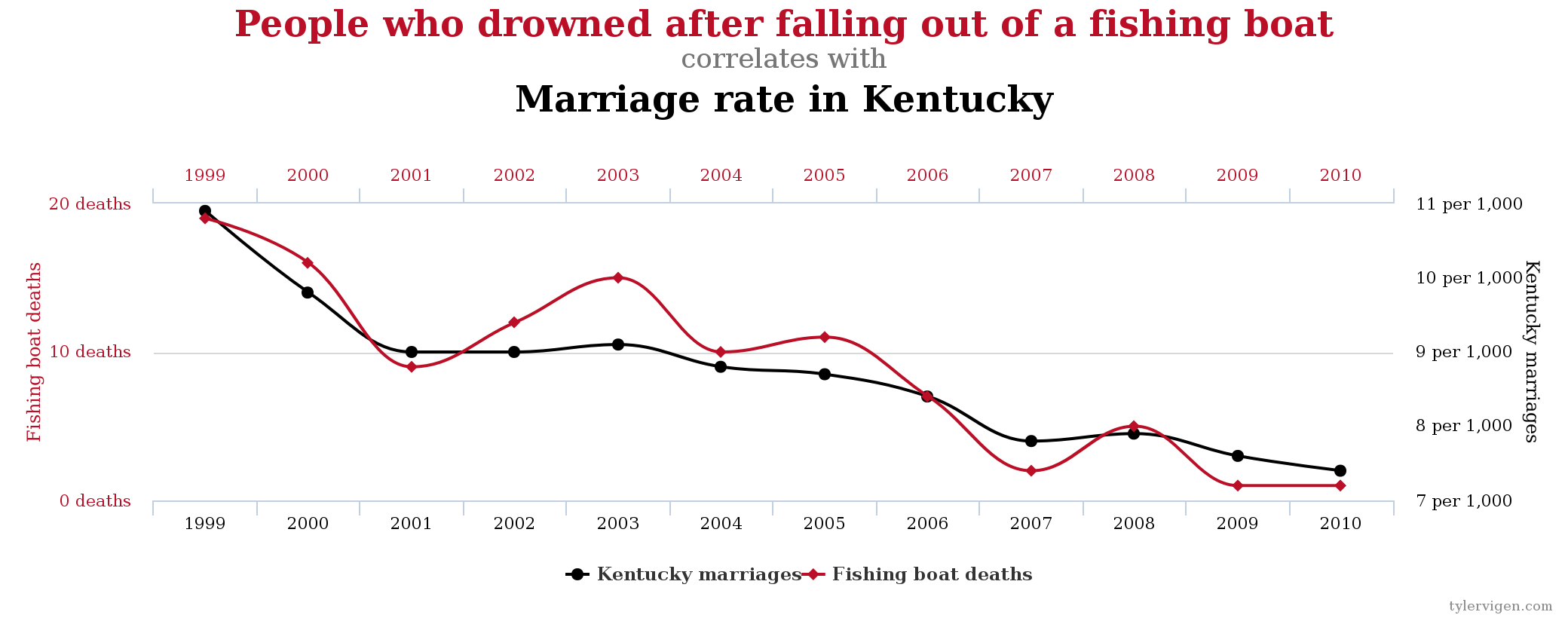Correlation means two variables have either a positive or negative relationship with each other (e.g., when one goes up the other goes up) but does not tell us anything about if one variable caused the other to go up- which is what causality aims to answer.
For example, there's a correlation between having a cigarette lighter in your pocket and lung cancer. But the cigarette lighter did not cause the cancer.
Instead, smoking (which is correlated with having a cigarette lighter) has the causal link with lung cancer. Causality ultimately answers the question, if we kept all other variables constant in someone's life (even keeping that cigarette lighter in their pocket), but changed their smoking habits would their outcome (lung cancer) have changed.

